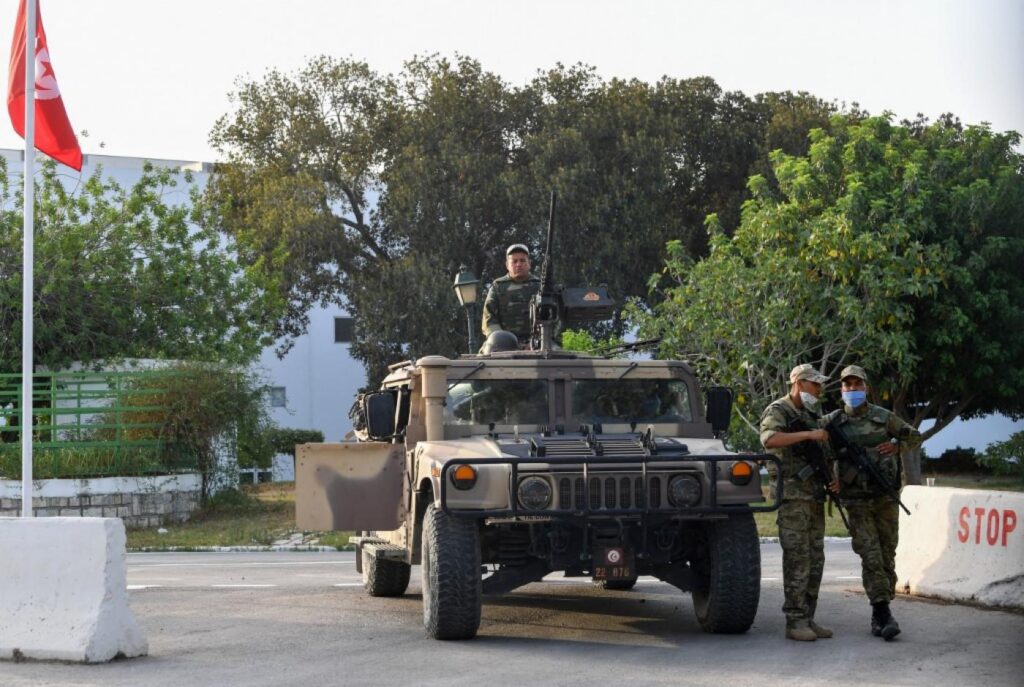
Tunisia’s largest party has held the entire political class responsible for crisis, while President Kais Saied says ‘no dialogue except with the honest’
Tunisia’s President Kais Saied said on Thursday there was “no turning back” from his decision to freeze parliament and assume executive power, moves his opponents have branded a coup.
Speaking in a video published by his office, Saied also rejected calls for talks over the crisis, saying “there is no dialogue except with the honest” and that no dialogue was possible with “cancer cells”.
Ennahda, the biggest party in parliament, which has been the most vocal opponent of Saied’s moves, had called for dialogue in a statement earlier on Thursday.
In a statement, the party stressed “its commitment to dialogue with all national actors, foremost of whom the President, in order to overcome the complex crisis, achieve social peace and implement the necessary reforms.”
It also called on Tunisians to continue “peaceful activism for a democratic Tunisia that ends all forms of despotism, corruption and totalitarianism, and all forms of extremism, exclusion and violence.”
Some 11 days after his intervention, Saied has not named a new prime minister, announced any steps to end the emergency or declared his longer-term intentions.
The country’s powerful labour union, as well as both the United States and France, have called on him to quickly appoint a new government.
The union is preparing a roadmap to end the crisis that it says it will present to Saied.
‘Military must observe its role’
US Senate Foreign Relations Committee Chairman Bob Menendez and ranking member Jim Risch said on Thursday they were deeply concerned by the situation.
“President Saied must recommit to the democratic principles that underpin US-Tunisia relations, and the military must observe its role in a constitutional democracy,” they said in a joint statement.
The Biden administration has largely sidestepped questions on whether Saied’s actions constitute a coup.
Will Todman, a fellow at the Center for Strategic and International Studies in Washington DC, told MEE he was not surprised by the Biden administration’s soft response to the events unfolding in the North African country.
“They have been taking a careful approach to events in Tunisia, and I don’t think there is enormous alarm in [the] administration that this is a coup or that Saied has authoritarian designs,” he said.
Meanwhile, ousted Prime Minister Hichem Mechichi appeared in public for the first time on Thursday since he was dismissed.
He was shown in pictures published by the anti-corruption watchdog that it said were taken on Thursday at its office.
MEE reported last week that Mechichi was physically assaulted the night before he agreed to resign.
The Maghreb Street newspaper reported Mechichi’s denial that he was forced to resign. MEE stands by its report.
